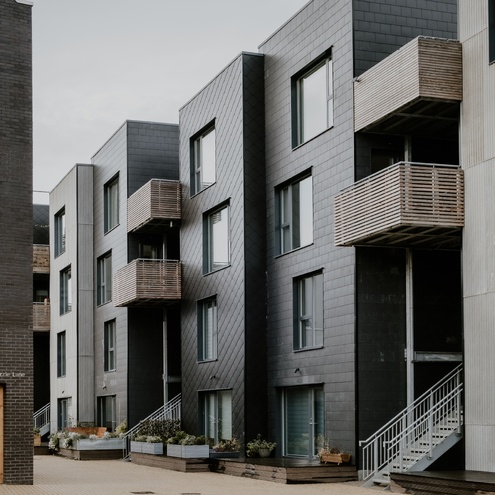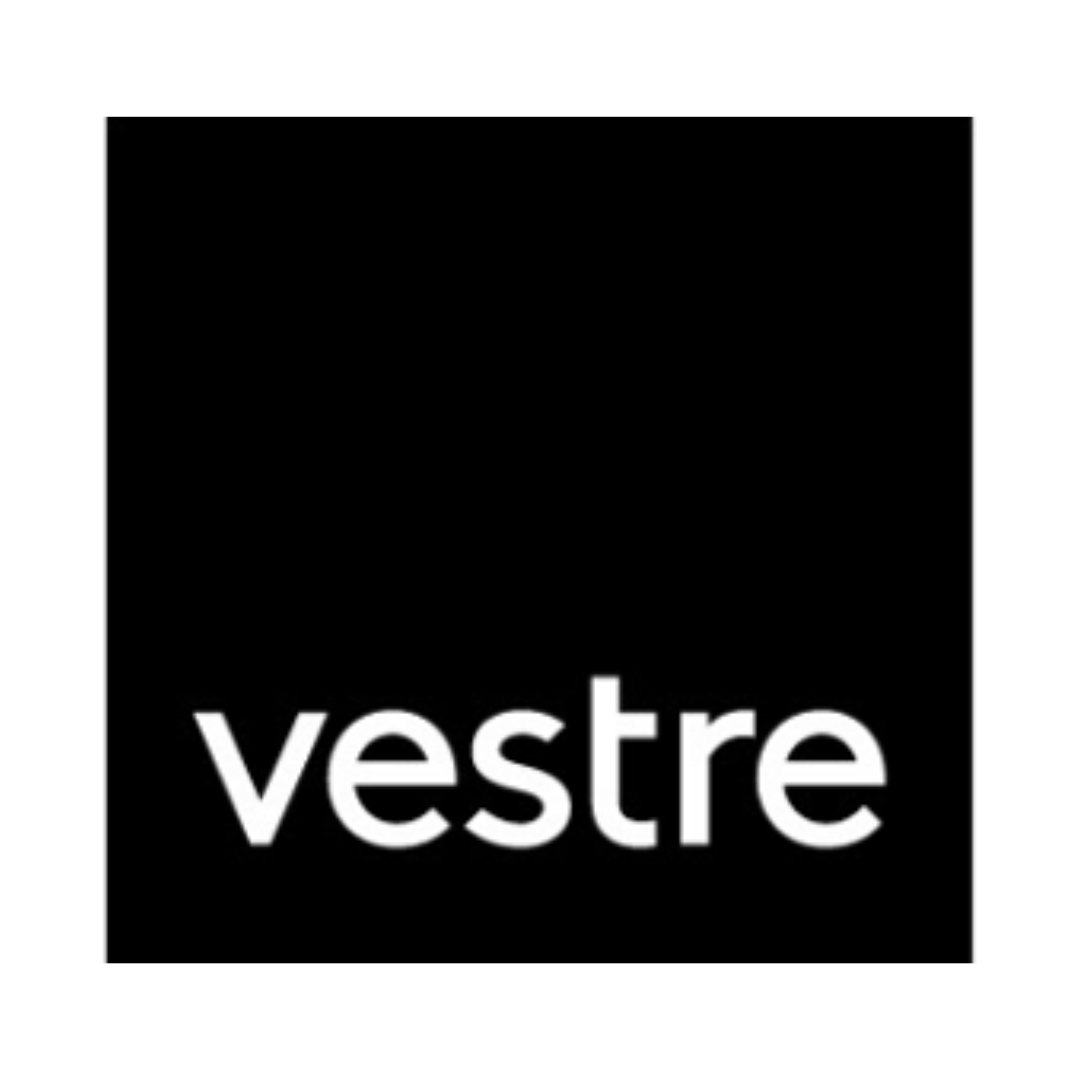Project showcase
Little Kelham - Kelham Central, Sheffield – Citu with Citu Design, Citu Manufacturing and Citu Delivery

The sustainable developments Little Kelham and Kelham Central offer long-leaseholds owned and controlled by the non-profit Community Interests Company (CIC). The CIC will also have a Utilities Cooperative to provide electricity, water, and data to offer better prices to residents than for-profit energy. The sustainable development has removed cars from its green network into an undercroft podium, to encourage the use of the tram and cycling into town.
Who is on the project team?
Citu Design
Citu Manufacturing
Citu Delivery
Describe the context of this project and the point it has reached in its development. When is the project expected to complete?
Little Kelham / Kelham Central is a pioneering sustainable development, the first of its kind in Yorkshire. The development has accelerated the transition for Sheffield to become a zero-carbon city and act as a transformative driver for sustainable development in the Yorkshire region. The development has been designed around recognised key principles for creating truly sustainable places to live, focused on promoting positive behaviour linked to transport, energy and housing. Renewable energy is being used to power the site whilst high performance, timber frame homes reduce the use of embodied and operational carbon in homes.
The first phase of the development ‘Little Kelham’ is now complete, and comprises of both new builds and refurbished buildings with architectural significance including the Grade ll Listed Green Lane Works clock tower. The phase has 144 residential units and 8 commercial units which have significantly enhanced the placemaking element, creating a ‘buzz’ and high footfall with its walkable streets and interconnected squares. Commercial tenants include award-winning restaurants, craft brewery bars, a floristry school and creative office space.
The subsequent phase of the development ‘Kelham Central’ builds on the success of Little Kelham and is now around 40% complete. This is comprised of 114 new build houses and apartments and 2 commercial spaces. Kelham Central follows the pattern of Little Kelham, creating medium density, walkable streets.
How are you seeking to foster community, welcome visitors and attract tenants? How are you responding to changing demographics, behaviour, market context, policy, transport habits and the climate crisis since winning planning?
The development has a community centred approach. The properties are sold on a long-leasehold basis and Citu has set up a Community Interest Company (CIC), a non-profit organisation which the residents buy into and the freehold of the development is transferred to the CIC upon the final sale. The CIC will own and control the freehold, making residents the overall decision makers for the estate management.
The CIC is also set up with its own utilities Cooperative, which provides electricity, water, and data to all residents. By buying energy in bulk, it can provide the residents with these utilities cheaper than for-profit energy companies. The Utilities Cooperative generates revenue by selling excess solar energy generated on the development back to the grid. This extra revenue covers the running costs of the Cooperative, which is ultimately controlled by the CIC.
The mixed use nature of the development provides a wide demographic of people and footfall to the area. The development offers residential properties in varying sizes ranging from 496 sq ft small 1-bedroom apartments to 1327 sq ft 4-bedroom family houses, promoting a wide and diverse demographic.
The location of Kelham is a short walk to the city centre and has the tram route connecting through. Little Kelham has a focus on sustainable travel, with cars removed from the landscape into an under croft podium area with shared communal garden space on the roofs. Each parking space sold has EV infrastructure available in order to have charging points fitted.
What is your sustainability strategy and how are you mitigating carbon use and construction pollution?
Little Kelham/Kelham Central is extremely low carbon. Both in embodied carbon with use of timber frames and operational carbon with use of renewable technology. Citu homes use an airtight thermal envelope and hold incredible standards of insulation to create a home that’s so efficient that a traditional central heating system with a gas boiler will no longer be required. A key part of this is the Mechanical Venitlation Heat Recovery (MVHR) system. We are building an air-tight thermal envelope that is 10x more airtight than what’s required by building regulations. The MVHR units transfer 90% or more of the heat of the exiting stale air onto the incoming cooler fresh air. That means heating requirements are just a small fraction of what would be required in a traditionally built home.
Solar photovoltaics are installed on the roof of the development. The development incorporates a high level of PV panels on the roofing which covers more than 10% of the energy demand. The PV is on a private wire micro grid, and generation can therefore be fully utilised by the homes (when demand exceeds PV supply). The PV is installed across various roof tops but feeds directly into the private wire network, so it’s shared between all homes, instead of just being used by the home it sits on, and therefore these houses benefit.
As a company we have three carbon targets, and we constantly assess and transform everything we do as a business to ensure these are hit (see attached).
Describe the social impact of the project: How is this place contributing to the economic, environmental and social wellbeing of its citizens?
Little Kelham has had a significant impact on the area of Kelham Island and its citizens, being a catalyst for regeneration in this area of Sheffield. It has recently been voted one of the best postcodes to live in and the 35th Coolest Neighbourhood in the UK. Little Kelham has breathed new life into the area, inspiring a thriving new scene of independent restaurants and creative industries to now operate in the area. It has recently been used as a Netflix filming location for an upcoming film bringing further exposure to the area.
Adjacent to the river, a wetland home to local otters, kingfishers and herons, and flanked by abundant plant life, the development maximises on eco-friendly living practices with free on-site bike storage, and electric car charging stations.
Our homes strive to tackle the epidemic of loneliness, which we see as not just creating buildings that bring generations together, but how the wider place works to bring the community together and encourage interactions. That’s why we’ve featured a network of green spaces, perfect for kids to play and for adults to get together with friends.
Each home is built to exacting standards and devised to scale new heights of modern Scandinavian luxury. Minimal by design without missing a beat when it comes to functionality- high-spec kitchens features white corain work surfaces and white cabinets complemented by sleek induction hobs. Elsewhere, contemporary bathrooms juxtapose flawless white tiles with stainless chrome finish fittings.
Festival of Pineapples
24-26 February 2026
Pineapples prize giving night
April
Pineapples at Festival of Place
10 June 2026
© The Pineapples - Tweak Ltd. 124 City Road, London, EC1V 2NX. Tel: 020 3326 7238




